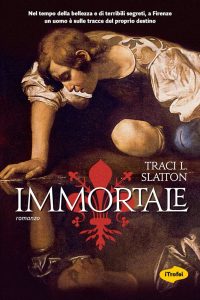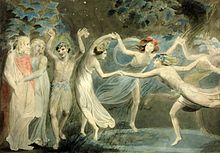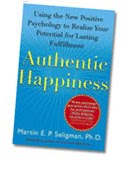The Italian cover of IMMORTAL
The Italian cover of IMMORTAL
TRACI L. SLATTON
Author Blog

The Italian cover of IMMORTAL

In one of the multitude of homes which my family inhabited as a peripatetic Navy family, we lived next door to a man who’d been in the army during WW2 and liberated one of the camps. I was 9 going on 10 and always sidling up to him to ask him what it was like. Sometimes he would talk. Mostly he would cry.

Over the course of what felt like a particularly dreary and inelegant winter, I fell in love: with Mozart.

I am sparring with my middle daughter’s high school principal and her history teacher. I want her to have the opportunity to revise an “F” research paper on the Industrial Revolution so she learns how to write a good history paper. They are refusing. I don’t even care about the grade. I certainly don’t care about the industrial revolution. I just want her to learn. Moreover, she wants to learn, and will do the revision, with guidance.
The necessary disclosure: this 9th grade girl is feisty, brassy, exuberant, creative, beautiful, talented, intelligent, and original. She’s also naughty. She breaks boundaries and tests limits. She doesn’t take “no” for an answer and she won’t do most of her work. I look at her and think of that famous quote, “Well-behaved women seldom make history.”
And then my heart breaks. Because 80% of what she does ends up being self-sabotaging. Her scrambled-eggs teenage brain has an exquisite talent for bad choices. I am her mother, I ache for her, and I am sad for what she will put herself through before she understands.
But she likes her history teacher, who is dynamic and charismatic. She wants to do well for him. She works in his class. But she started to struggle and to look perplexed while doing her papers in the fall. I started making a request: “Please let her revise a paper until she understands what a good one is.”
She also admitted to me that she didn’t know what to do. I conveyed that, thinking that surely the teacher would want to help her learn what to do.
But the teacher consistently refused it. He didn’t want her to revise and he wouldn’t help her with a revision. It perplexes me. Isn’t the job of a 9th grade history teacher to teach the kids how to write a high school history paper? Isn’t his job more than to be snazzy in class? How are the kids going to learn critical thinking unless they learn how to write, and the ONLY way to learn how to write is to rewrite?
Did he expect her to write a good paper, or even a passable paper, when she hadn’t learned how to write one? Was she supposed to simply stumble across the way to write well? Does keeping-fingers-crossed-for-good-luck pass for careful pedagogy?
I know about learning to write both because it’s my lifelong pursuit, and because I taught writing at the college level. I taught Logic & Rhetoric, aka Freshman Composition, at Columbia University. With 100% certainty, I can say that the freshmen who learned how to write are the ones who revised, revised, revised.
Yes, there are some people who are born good writers. With a small amount of guidance, they become excellent writers. But mostly writing is a skill like piano playing. The more you practice, the better you get. And it’s closely related to learning how to think.
In these notions, I am not alone. George Orwell articulated the argument much better than I can. In his 1946 essay Politics and the English Language, he writes, “Modern English, especially written English, is full of bad habits which spread by imitation and which can be avoided if one is willing to take the necessary trouble. If one gets rid of these habits, one can think more clearly….”
So why wouldn’t the history teacher, and the principal, want to take the necessary trouble to help a student think more clearly? Isn’t that their reason for being? At least partly?
My daughter attends a private school, and the tuition is exorbitant. One would think that, at a school charging more than most people earn in a year, she would be required to learn how to think clearly, which means learning how to write clearly.
Orwell is talking partly about diction and construction in his essay. I guess that would be the purview of the English teacher, not the history teacher. But the message about the relationship between clear thinking and clear writing bridges all disciplines. The more clearly my daughter writes about history, the more clearly she is thinking about it. If the history teacher isn’t there to teach her how to write a history paper, shouldn’t he at least be teaching her how to think about history? Or does he just want her memorize that Robert Fulton received a patent for the steamboat in 1809?
Regarding revision, E.B. White stated it best in The Elements of Style: “Revising is part of writing. Few writers are so expert that they can produce what they are after on the first try….Remember, it is no sign of weakness or defeat that your manuscript ends up in need of major surgery. This is a common occurrence in all writing, and among the best writers.”
So why wouldn’t the teacher, and the principal, want to instill that work ethic in their students? Why wouldn’t 9th graders be taught as freshmen that revising is writing?
It’s more work for the teacher, for sure. And a teacher who knows he is lively and engaging in class might not be motivated to take the extra time and effort. He knows the kids love to be in his class. But is he really doing his job as a 9th grade history teacher, if he doesn’t require a motivated but struggling student to revise a failed paper until it is passable, so that she learns what to do? So that she learns how to think, both about history, and about an argument?
I don’t think so.